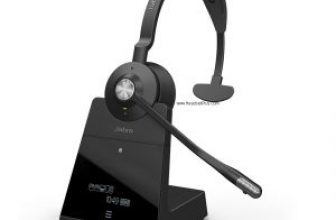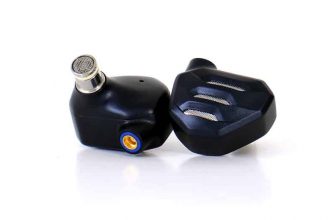
This feature is a review of the SIVGA Oriole which is a new 50mm dynamic driver closed-back on-ear headphone with a natural rosewood design. It is priced at $199.
Disclaimer: This is a sample that was sent in exchange for our honest opinion. Headfonics is an independent website that does not have any affiliate links or status. We thank SIVGA for their support.
To learn more about SIVGA products previously featured on Headfonics you can click here.
Note, that this article follows our latest scoring guidelines which you can read up on here.
My last review of the SV021 Robin from exactly a year ago in 2021 ended up being a fun experience. Over the holidays, I had recommended it often because it deserved it.
This year, we got a new kid on the block, the SV022 Oriole which seems to have taken everything from the Robin and improved it.
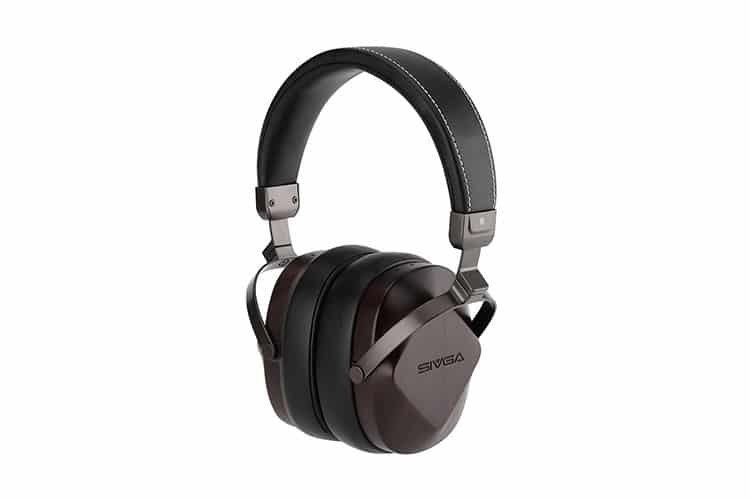
Tech Highlights
The SIVGA Oriole houses a 50mm dynamic driver that feels tight and enjoyable from top to bottom. Where are they going to go from here? 70mm? No need. They aren’t Sony with that older XB-1000 70mm driver but oh, can we dream. For now, SIVGA went back to the drawing board and designed a new driver unit for this Oriole model.
I am fairly certain they’ve used the same polycarbonate blend materials, also fairly certain the driver materials didn’t change in the wiring used, which remains a fusion of copper and aluminum.
SIVGA says their diaphragm is made in their own facility and not outsourced anywhere else, they make it custom and with love.
Design
The closed-back Oriole earcups are made of high-density rosewood and offer extremely soft memory foam pads and headband materials (more on this in the next section).
For now, the woodie appeal is lovely, and well, you know me, woodies make me weak. I appreciate the craftsmanship involved in each milling of the woodcuts.
Aesthetically speaking, these are beautiful headphones with a deep wood tonal hue. I enjoy it quite a lot! It puts out a higher-end vibe and comes in two color options: brown and black. There are some vented ports at the top of each earcup, which allow for some air movement inside the chamber of each cup.
Beyond that, the yolk Y-braces are sturdy aluminum and feel very solid in the hand. The build quality is excellent overall.

Comfort & Isolation
Alright, I’ll just come out and say it straight up. This is one of the highest comfort scores that I will likely give a full-sized headphone.
This is a new benchmark in comfort for me. Shockingly soft, and lightweight and the headband and earpads are extremely supple and forgiving. It is an absolute pleasure to wear for hours. What amazes me most is the headband design and clamp factor, which is supremely soft all around.
The leatherette used is silky smooth and might as well be filled with actual clouds on the inside, this is not a cut of memory foam shoved in some material for the earcups. Whatever foam is in there, it is very airy and whatever the opposite of extremely dense is. Spongey? I don’t know but this is it.
Of any set that I own or have tested in recent years, this is the most comfortable headphone so far that I’ve experienced and reviewed.
The combination of a proper headband angle (a big issue for me in other companies) and the extremely lightweight and soft earcup design make this the alpha for comfort.
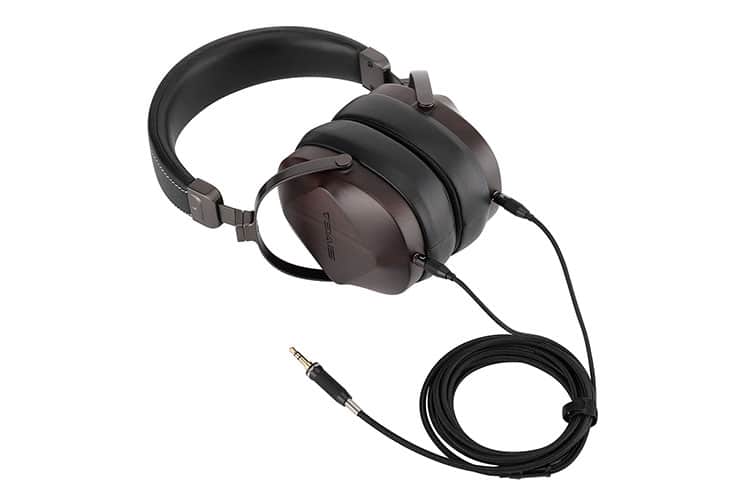
Stock Cable
The Oriole stock cable is nothing to shout over, it is fairly basic and annoyingly long. I don’t think these headphones are good enough for home usage for die-hard audiophiles who demand the best sound for any price point.
Clearly, this is a portable and smaller-fitting headphone and not a truly full-size headphone that needs to be used with a home rig. That 2m long option is extremely intrusive when walking around with it. This should have been a 1.5m cable at best with an optional longer extension given at checkout for extra money.
The earcups each have a single 3.5mm port that the stock cable will plug into, the ports are not recessed and will be friendly to most other dual 3.5mm cables.
The cable is fabric laced, which is what I prefer and want to see, and it is on the thinner side and not physically intrusive in thickness or weight, which is also smart of them to make sure of.
The 3.5mm adapter has some strain relief and is fairly basic, otherwise. Just cut the length down next time, we don’t need a cable this long for something that most of us are going to use on the go.
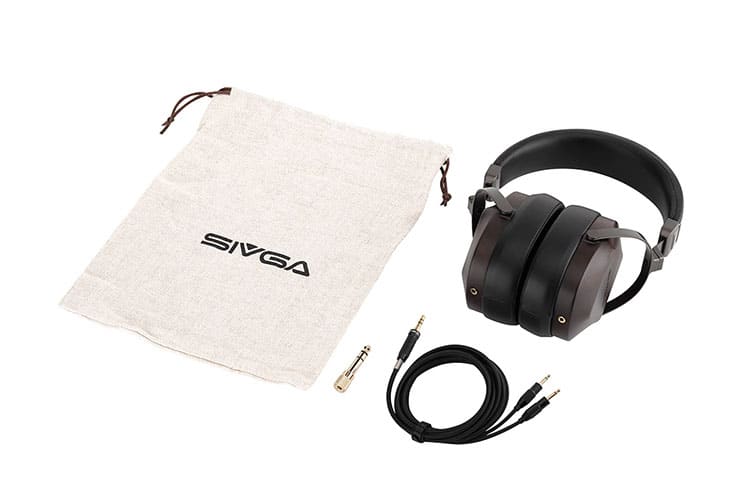
Packaging and Accessories
The Oriole box is fairly nice, with a great exterior design and a standard foam cutout for the headphones inside (mine was a sample unit, it apparently comes with a fabric bag that my box did not include).
The stock 2m long cable, the earpads, and the headphones are really all we need anyway. Thankfully again, the 3.5mm ports into the cups are not recessive in design, so if you have a really nice 3.5mm cable, toss it on there and enjoy.
Otherwise, the boxing experience and accessories are covered as only the necessities are included.
Sound Impressions
Bass
The SIVGA Oriole is cited on their website as a bass moderate headphone. Maybe, perhaps right on the cusp of what I consider bass light and bass moderate when there is no active EQ on your source.
Adding more in through something like MSEB, (a nice EQ feature on some portable music players that is found in the HiBy Music app for Android for free), will get you a bit extra oomph down there, but not much.
This is not a super responsive headphone when it comes to bass response to alterations in your source player.
Thankfully, the bass is of a nice enough quality to merit the price tag. $199 is justified. A nice and audible leap from the SV021, that is for certain, which sounds thinner, less pure, and grainier overall.
Don’t expect bass-head levels of quantity but do expect lower mid-tier quality and purity factor. After a +5dB of extra low end, the Oriole becomes a bit too muddy.
So, I would recommend this to those looking for a more chill headphone that is an all arounder, rather than a bass specialist.
Midrange
The midrange of the Oriole is forward and lively, a bit different in placement than the SV021 which felt more recessed.
It seems they’ve brought it up and forward a bit to even things out and make the headphone feel less cavernous as a byproduct of having a recessed vocal experience. The midrange is thicker, and of more substance, but also more pure and clean feeling than the past model.
If you enjoy melodic metal and guitar instrumentals from bands like Polyphia, or any Djent subgenres, this is a great headphone for you. The upper mids are lively and bright, with a good sense of bite and substance factor that makes most instrumental experiences more fun than usual.
The upper mids are the star of the show, which clearly, (to me), feels like what my ears focus on pretty much at all times. So, if you like the big band genre, Jazz, guitar fusion, or jazz vocals, this is a great option for you.
The headphone is not super forward and overly in-your-face feeling, nor is it the middle ground. This is an ideal position for being well-engaged without feeling fatigued.
Treble
The Oriole treble has a slight brightness factor that I find enjoyable, and a significantly more clean feeling than the SV021 Robin model that came last year. This time around, the top side is like a spotlight in the night, dark around the borders but with a strong sense of engagement.
This is not a fatiguing top end, nor a sibilant one. Instead, it gives a good amount of quantity without it feeling slamming or physically overly impactful. I call that the slam effect, or wince factor. These headphones are moderate on that physical slam, which makes it very enjoyable without sounding boring or dry, and without it feeling painful and too physical.
The quality factor is very nice as well for the price. But I consider the tone and texture a bit on the dry side and lacking something in the topmost peak areas. I think it just needs more energy up there and it is possible to achieve that with some moderate EQ’ing here and there.
This is not a big issue; I just feel like the absolute peak areas are just not enough to do justice in quantity factor for the amount of quality that it puts out. I simply want a bit more, just a smidgen.
Soundstage
The imaging prowess of the Oriole is highly centered in the depth of field and lacks a sense of plentiful width and height. The realism factor is very nice, impressive even, and significantly better than the SV021.
The width and height factors are just good overall and nothing to gawk over. What there is, is just fine, coherent, and perfectly acceptable for a closed-back lower-mid-tier headphone.
Realism and density factor are much improved over the last model. Weight carried, that physical substance factor of the entire experience, literally feels heavier and thicker, of a higher substance value than the previous generation.
Synergy
Efficiency
At 32Ω, the Oriole doesn’t need or benefit from any amplification. Right out of my phone, I am able to power it to the max and I feel no difference in substance or quantities between using just my phone, or my TempoTec V6 DAP vs my expensive home Burson Audio desktop amp.
The Oriole does not benefit much from extra voltage, all I can feel is more smoothness and clarity when I am able to use a better amp than my phone (which is really nice and has an excellent DAC inside of it).
My recommendation is to stick with a solid mid-tier DAP and don’t worry about ever plugging this into your home rig. You will not hear much of a difference in quality anyway.
This headphone is moderate at best on bass quantity, mid-forward, and plentiful in the treble. It also has just good imaging overall and that all together indicates that amplifier and source pairing is open season, basically.
Pick whatever you want. The headphones don’t change much when swapping to other products, such as my CEntrance HiFi-M8 V2 or the TempoTec V6.

Pairing
My Sony Xperia 1iii’s is swiftly becoming one of my favorite smartphone audio players. Depending on the headphone, I hear literally no difference in quality between the phone’s 3.5mm output and the nearly $549 Ultrasone Panther amplifier and DAC.
Yep, the Sony phone is that good to my ear, so I am finding that the Oriole + the Sony 1iii is the best overall option. I am able to alter some of the EQ sound traits with the Hiby app via MSEB being awesome, as always.
And with that, I don’t need a portable amp or anything at all extra. Plug in and go. This is a good combo, as the Sony phone has a slightly warm appeal in tonality that meshes nicely with the moderate bass quantity of the Oriole. This is a fun and enjoyable pairing.

Select Comparisons
SIVGA SV021 Robin
The older Robin model is less comfortable, less deep, realistic feeling, is less clean, and has a more physical slam effect on the low end than the newer SV022 Oriole. The new model has much better clarity and quantity in the midrange for roughly $40 more. IMO, that is a steal and what you should be opting for.
The new model is more friendly to being used with multiple types of amps and sources. Also, the original’s tonality is much dryer feeling and less interesting.

ESS 422H
Another $199 woodie headphone, the ESS 422H is much heavier than the Oriole, far less comfortable, clamps hard, and has a very punchy and less pure feeling experience overall. The Oriole feels noticeably deeper and more realistically dense from top to bottom.
True, the cut of wood is much thicker and heavier on the ESS model, but that extra quality in the woodcut doesn’t mean much when the Oriole simply sounds much cleaner. The treble on the ESS is also a little piercing and fatiguing vs the Oriole’s tame but enjoyable top side.
HIFIMAN R7DX
A fair bit cheaper, but still in the same general league. The HIFIMAN Drop RD7X is a closed-back that sells for $99 or so these days and feels like a thin dry sheet compared to the Oriole. Interestingly, despite the HIFIMAN sounding much less clean across the board, the HIFIMAN has a better imaging experience.
The Oriole feels more closed in, lacking width and separation, as well as the air between instruments and vocalists that is abundant and pretty good on the RD7X.
Also, the HIFIMAN is pretty up there in comfort and remains one of the other most comfy headphones around too. The Oriole feels chill, plentiful, but chill. The HIFIMAN feels rushed and impactful, overly energized.

HIFIMAN HE-R9
$349 gets you the HE-R9 from HIFIMAN, which has a significantly larger imaging experience than the Oriole by a huge factor. Bass depth and quantity are second to none on the HE-R9 and severely lacking quantity on the Oriole by comparison.
The Oriole is more forward feeling, but quite different in tonality sounding brighter and more focused. The R9 feels much denser, and more tonality warm, but it is absolutely massive in size compared to the much smaller Oriole.

Our Verdict
I feel the same about the new SIVGA Oriole l as I did the previous Robin in terms of worth and value. But this time around, the comfort factor is off-the-charts good.
They’ve improved every bit of the experience, from the bass to the mids, the treble, and imaging, right down to how comfortable it is and how well it is built.
This is everything you could want for $199. This is a great option for those on the go, and anyone traveling will appreciate just how long you can wear them and not get uncomfortable. Great holiday gift, just like the SV021 was.
SIVGA Oriole Specifications
- Style: Over-ear
- Transducer type: Dynamic driver
- Transducer size: 50 mm
- Frequency response: 20 Hz – 20Kz
- Sensitivity: 108dB+/-3dB
- Impedance: 32Ω+/-15%
- Cable length: 2.0 M +/-0.2M
- Connector: 3.5 mm
- Weight: 280g
creditSource link





